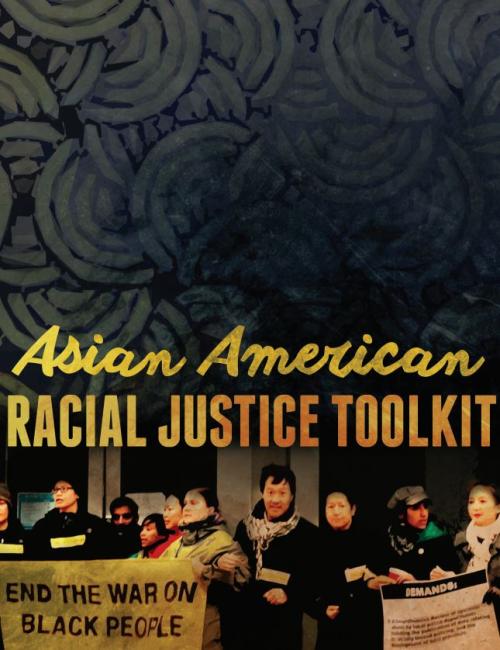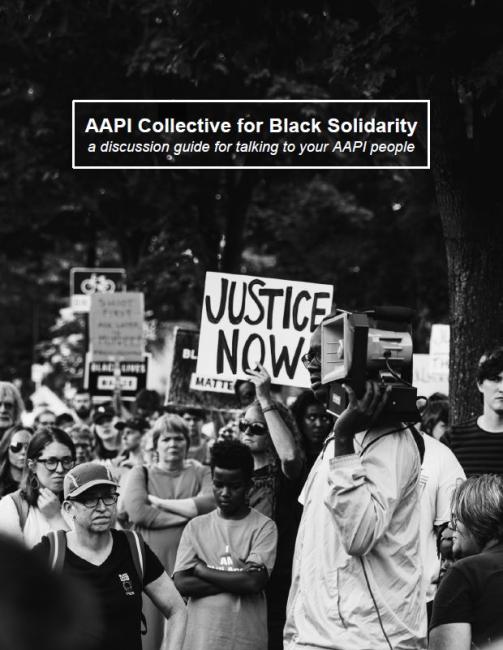At CAPAA, we understand that the needs of communities of color are intertwined. It is important for us to work together to dismantle the legacy of white supremacy and combat racism in every instance at every level. Part of this work requires tackling racism within our own communities, and ways in which APA communities are complicit in white supremacy, particularly as it relates to anti-blackness.
As allies, CAPAA staff and Commissioners commit ourselves to understanding how we personally benefit from and uphold systems of oppression and will have time at our upcoming board meeting for shared thought and discussion regarding current events. As community members, we commit to doing the difficult but necessary work of understanding white-skin and light-skin bias, anti-blackness, and racism in our own communities. And as a Commission, we commit to supporting and facilitating dialogue internally, in the API community, and with other racial groups via the Ethnic Commissions. As institutional actors, we recognize our role to educate, activate, and advocate for civil rights, social justice, and equal protection under the law.
In response to this need, we’ve compiled resources to tackle anti-black racism in APA communities.
-
Asian American Racial Justice Toolkit
-
Grassroots Asians Rising, a coalition of grassroots 15 APA organizations, created the Asian American Racial Justice Toolkit. The toolkit is an extensive racial justice education tool about the history of racism in the U.S. and the role of Asian Americans in this history. It touches on criminalization, deportation, anti-blackness, homophobia, xenophobia, war, gender violence, poverty, and the intersection of all these issues and more.
The first of the toolkit consists of racial justice trainings that break down issues of race in America, formatted into roughly 2-hour sessions for organizations interested in holding workshops and classes.

-
AAPI Collective for Black Solidarity
-
The AAPI Collective for Black Solidarity is a discussion guide for addressing anti-black racism by and to the AAPI community. This toolkit was created to hold structured small-group discussions, and contains facilitation techniques, common misconceptions and objections, and ideas for next steps.
This guide is a useful tool for organizations looking to host short workshops and discussions.

-
Letters for Black Lives
-
Letters for Black Lives is a set of crowdsourced, multilingual, and culturally-aware resources aimed at creating a space for open and honest conversations about racial justice, police violence, and anti-Blackness in our families and communities. The project began in 2016, and added updated and new translations in 2020 following the death of George Floyd in Minneapolis and the ensuing global protests. Below are APA language translations of the letter.
Note: Though the intent of each letter is the same, the 2020 version includes information about recent events, including the deaths of George Floyd, Dreasjon Reed, Tony McDade, Breonna Taylor, and Ahmaud Arbery. The Canadian version of the letters include cases of officer-involved shootings of Black people in Canada.
- English: US 2020 | Canadian 2020 | South Asian American 2020 | US 2016 | Canadian 2016 | Asian American 2016 | Asian Canadian 2016 | South Asian American 2016
- Bengali: US 2020 | US 2016 | Canadian 2016
- Burmese: US 2020
- Chinese (Cantonese): Canadian 2016
- Chinese (Simplified): US 2020 | US 2016 | Canadian 2016
- Chinese (Traditional): US 2020 | US 2016 | Canadian 2016
- Gujarati: US 2020
- Hindi: US 2020 | US 2016 | Canadian 2016
- Hmong: US 2020 | US 2016 (Green dialect) | US 2016 (White dialect)
- Indonesian: US 2020 | US 2016 | Canadian 2016
- Japanese: US 2020 | US 2016 | Canadian 2016
- Khmer: US 2020 | US 2016
- Korean: US 2020 | Canadian 2020 | US 2016 | Canadian 2016
- Lao: US 2020
- Malayalam: US 2020
- Malaysian: US 2016
- Mongolian: US 2020
- Nepali: US 2020 | US 2016 (Formal) | US 2016 (Simple)
- Punjabi: US 2020 | Canadian 2016
- S’gaw Karen: US 2020
- Sinhala: US 2020
- Sylheti: US 2020
- Tagalog: US 2020 | US 2016 | Canadian 2016
- Tamil: US 2020 | US 2016 | Canadian 2016
- Telugu: US 2016
- Thai: US 2020 | US 2016
- Tibetan: US 2020
- Urdu: US 2016 | Canadian 2016
- Vietnamese: US 2020 | US 2016 | Canadian 2016
Additional translations:
-
Family Conversations
-
Family conversations regarding race and power can be difficult, particularly because of language and cultural barriers. The following resources are meant to help begin the conversation, from translated talking points to advice for holding the conversation. Letters for Black Lives is a great way to approach this conversation.
The resources below are strategies for having this difficult conversation, from things to keep in mind to conversation starters:
- Letters for Black Lives Follow-Up Conversation Guide
- 6 Ways Asian Americans Can Tackle Anti-Black Racism in their Families
- Talking to your Asian immigrant family about race: translated conversation responses and talking points
-
Glossary
-
Many of the words and phrases that are commonly used in conversations about racial justice are difficult to translate or they may not even have direct translations in APA languages. The following resources are crowdsourced translations for vocabulary around Black Lives Matter and racial justice.
- South Asian Language Translations for Addressing Anti-Blackness and Systemic Racism
- Translations available in Tamil, Sinhala, Urdu, Hindi, Gujurati, Punjabi, Farsi, Nepali, Bengali, and Telugu
- BLM Dictionary for the Asian American Community
- Translations available in Traditional and Simplified Chinese, Korean, Japanese, Vietnamese, Japanese, Thai, Nepali, Tagalog, and Arabic.
- Additional crowdsourced glossaries
- South Asian Language Translations for Addressing Anti-Blackness and Systemic Racism
-
Additional Resources
-
- Articles
- How Asian Americans Can Better Support Black Lives Matter
- Asian American Women Must Stand with the Black Lives Matter Movement
- South Asians and Black Lives
- A message to the Southeast Asian community regarding the Black Lives Matter movement
- Open letter from Freedom Inc.’s Southeast Asian Team on COVID-19 and Black Solidarity
- ‘Model Minority’ Myth Again Used As A Racial Wedge Between Asians And Blacks
- It Starts at Home: Confronting Anti-Blackness in South Asian Communities
- 20+ Allyship Actions for Asians to Show Up for the Black Community Right Now
- Webinars
- Solidarity Convos: Asian Americans & Pacific Islanders for Black Lives, courtesy of Act to Change
- Anti-Racism Amongst the Asian American Pacific Islander Community, courtesy of Strive with Me
- Other Resource Hubs
- Act To Change For Black Lives Resources
- Southeast Asian American Resources for Solidarity with The Movement for Black Lives, courtesy of SEARAC
- Anti-Racism for Asian Americans
- BLM Translated, a resource compilation courtesy of National Asian Pacific American Women’s Forum (NAPAWF)
- Includes extensive collection of multilingual information
- Includes cultural and historical context for some communities/languages (e.g. “Black Lives Matter for Filipino-Americans Video“)
- Asians for Black Lives: Resources and Call to Action, courtesy of Asian American Advocacy Fund
- South Asians for Black Lives, courtesy of Equality Labs
- The Southeast Asian Anti-Racism Toolkit
- Articles

